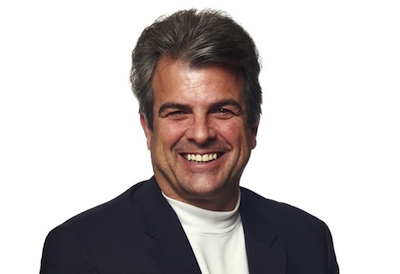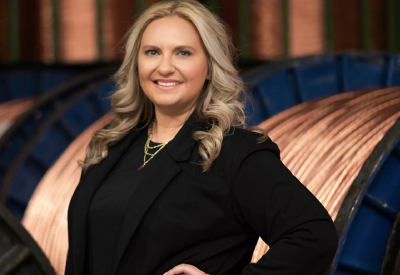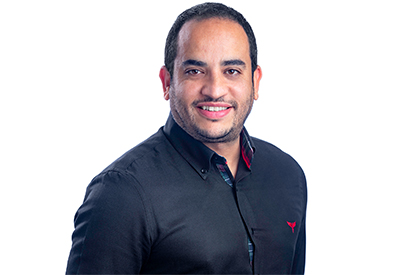Nathalie Pilon: A Woman Who Knows Her Own Mind
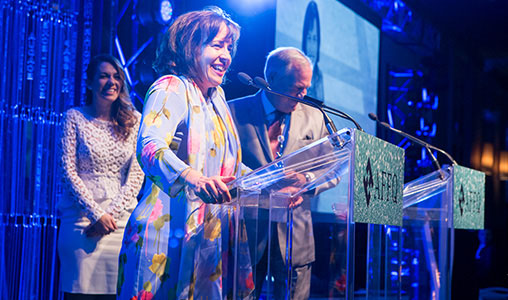
She would be loath to describe herself this way, but Nathalie Pilon is a model for many members of the electricity industry. As of October 1, this finance graduate from HEC Montréal [1] is General Manager at ABB in Canada. Before this she was President of Thomas & Betts for Canada and Australia.
In addition to her corporate responsibilities, Nathalie Pilon is an active member of various boards and committees, including Chair of Electro-Federation Canada, Vice-President of the Conseil du Patronat du Québec, and member of the Board of Directors of Manufacturiers et exportateurs du Québec (MEQ) and the CSA Group.
In 2011, the Women’s Executive Network (WXN) appointed Nathalie Pilon to its list of Canada’s 100 most influential women, and this year she was honoured with the Association of Quebec Women Finance (AFFQ)’s Leadership Award. She is also a member of the Conseil des sages d’Adrenalys, which aims to propel companies with strong potential to a higher level. And yet, our interview, which took place during her last week at the head of T&B, takes place in an atmosphere of conviviality and laughter. This woman must have a secret.
Nathalie Pilon is very involved in her community. It’s how she defines leadership. She studied finance and arrived in the electrical industry because she loved figures, but says that now she prefers people to numbers. “We are lucky to be in an industry where people respect each other. I respect my competitors and they respect me. Everyone in the supply chain acts like this,” she says with pride.
She is particularly involved as a member of the electrical and manufacturing industry and not just as a woman, but this could change a bit. Last May, following a lecturer’s comment on the presence of angry women in the labour market, Nathalie Pilon stepped away from her natural reserve and reminded the audience that there were as many Canadian women on boards of directors as there are in Afghanistan.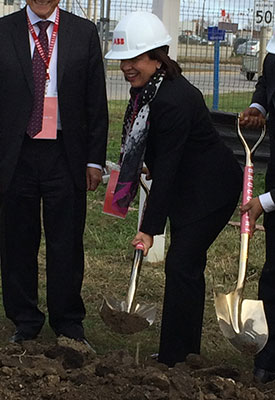
“I studied in finance because I liked the figures, no other reason or motivation. I started my career with KPMG and my first client was Thomas & Betts. That is how I started my career in the electrical industry. I am curious and passionate about the Canadian manufacturing sector and the importance of staying relevant in a global economy. So when at the age of 30, I was offered the position of Vice-President Finance at Thomas & Betts, I said yes.”
At the time, she recalls, the Director of Human Resources told her that if she were appointed to such a position at 30, she would be named President at 40. “I then told myself, ‘Why not?’ We’ll see. I’m not what you could call a careerist, I don’t think of my career as a set of goals to achieve in order to reach a certain hierarchical level, but I also don’t limit myself with thinking that such goals would be unachievable because I am a woman or because I’m not an engineer or because I want to balance my personal and professional life.”
I point out that, from the outside looking in, she appears to meet every challenge with ease, and ask her if she has encountered specific challenges because she is a woman.
“The biggest challenge has been to accept that I am not Superwoman, and to learn to delegate as soon as possible. This is probably the best advice I ever received,” says this CEO and mother of three children, ages 12, 14 and 16, “and I was fortunate to have received it pretty early. I always tell the children, my spouse, my team, ‘Under promise, over deliver.’ This as true for our personal lives as it is for our professional lives. It is imperative to avoid making promises that you can’t keep, to avoid creating unrealistic expectations, and to avoid placing unnecessary responsibility on your own shoulders. “The model of the superwoman, I imposed it on myself, but I never felt it on the part of my colleagues and my superiors.
“We need to know the value of our time and assign it to the right places. Keep things simple, don’t overreact to things, and don’t try to solve everything yourself. But to do this requires help. I am very involved with my children, they know my schedule, and with technology they can reach me easily. Don’t overreact, and don’t try to solve everything yourself. Social media, for example, allow us to stay close to people who at this stage of our lives or our careers we don’t have enough time to see regularly.”
I conclude the interview by asking her if, given the opportunity, she would have made different choices or done things differently.
As with all my previous questions, she responds spontaneously and confidence. “I’m happy with where I am in my life. Sometimes I say to myself that I could have done more to develop technical aspects of our industry, but then I think I’m doing okay,” she says smiling. “I’m able to think about technological developments that are coming and that will have an impact on our industry and our markets, and how to respond promptly. But I’m basically a woman who looks ahead. I’ve made choices and have taken responsibility for them. However, I have also realized that I should share this experience with more women. When I read the statistic comparing the number of women on boards here and to the number of women in Afghanistan, I felt that I had to be more present, not to advance my career or put myself forward, but to attract more women to our industry. We need new talent. We have everything to gain from hiring more women, even if it means doing things differently in an industry that sometimes is rather conservative and relies heavily on recruiting internally. Therefore, we have to open things up, and I will participate in this process. This is exactly what awaits me in my new professional challenge. I will be responsible for all of the divisions, not just one, so it’s time for me to lead by influencing. I believe our industry has a social responsibility. Sustainable development excites me at different levels, but it’s at the level of sustainable jobs, which affects people so much, that I am most concerned about. The manufacturing sector can keep high level jobs and innovate, it’s part of my sustainable mission.”
Line Goyette is Managing Editor of CEW. @linegoyette
1. HEC Montréal is a post-secondary business school whose reputation as a leader in teaching and research is recognized around the world.
Read more Peers & Profiles in CEW by Line Goyette:
Among the Dunnigans of Techspan Industries: a Sense of Adventure from One Generation to Another
David Beron — A Resolutely Scientific Spirit in a World that May Not Be Moving Fast Enough
Running Man: Stelpro’s Yves Chabot
Cara Backman— Open to Everything, Even Life’s Surprises
Nathalie Pilon: A Woman Who Knows Her Own Mind
David Nathaniel: A Talent for Being There at the Right Time
From One Generation to the Other, New Ideas Help the Company Grow
Daniel Peloquin: Just Do It, But Fail Fast
Lina Rishmawi — A New Canadian Who Loves Challenges
Michelle Branigan
Read all Peers & Profiles

